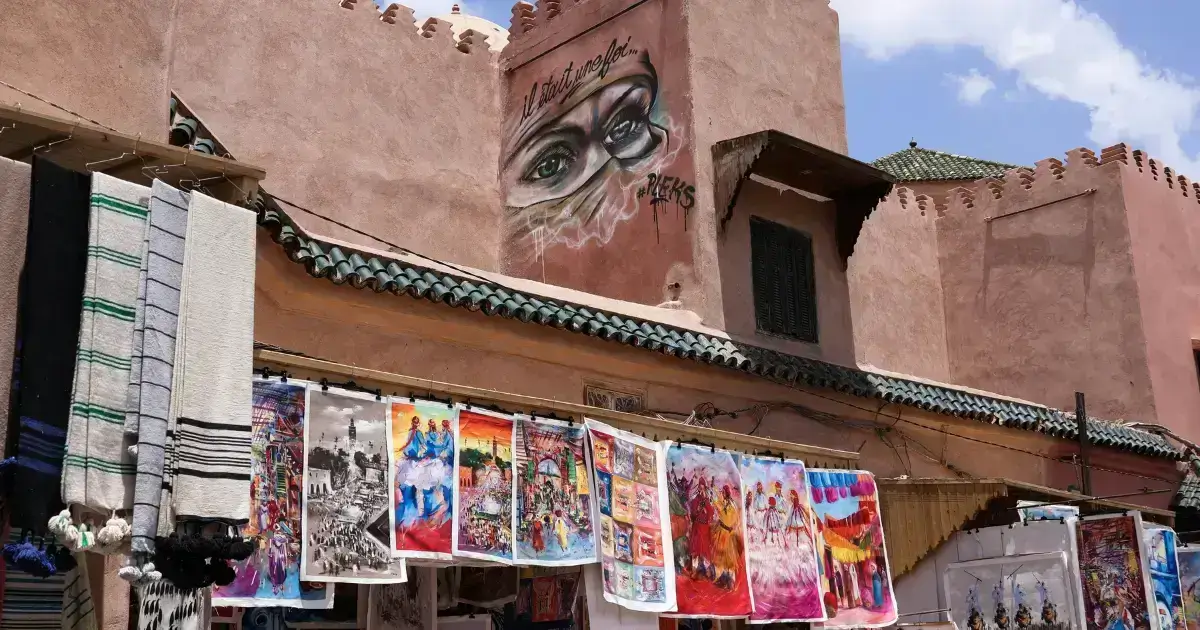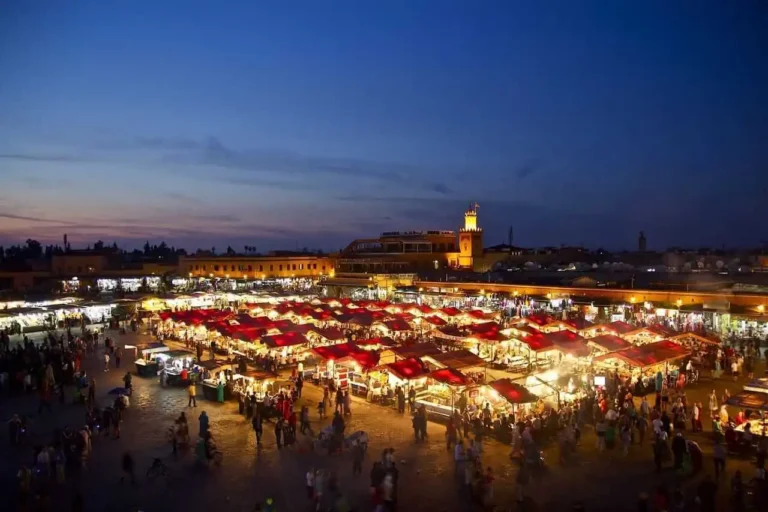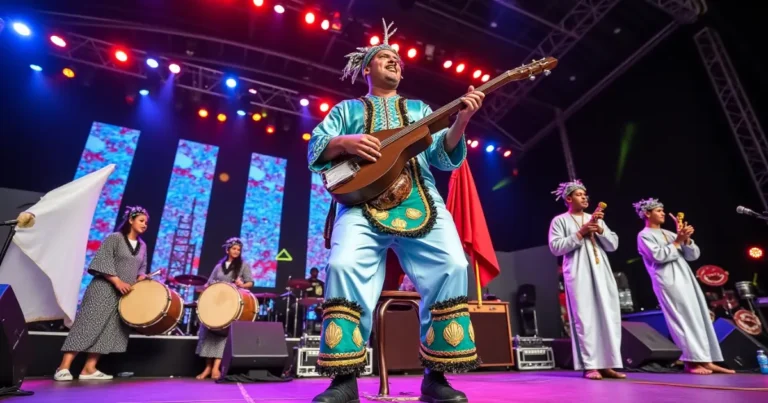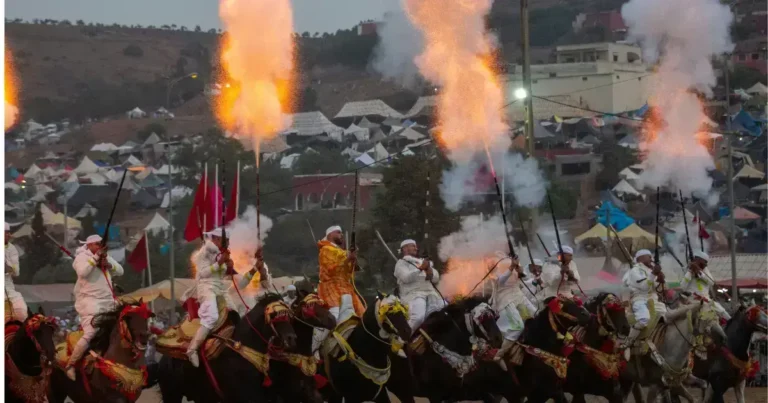Your Guide to Morocco’s UNESCO World Heritage Sites
Table of Contents
Discovering Morocco’s heritage, you’ll see how these sites are key to the country’s culture. UNESCO sites in Morocco are valued for their history, beauty, and significance. You can explore these places and see how different cultures have shaped Morocco.
Introduction to Morocco’s UNESCO World Heritage Sites
This guide will introduce you to Morocco’s UNESCO sites. You’ll learn about their cultural and natural importance. You’ll also understand why preserving these sites is vital and how to experience them responsibly.
Key Takeaways
- You’ll explore the rich cultural and natural heritage of Morocco through its UNESCO World Heritage Sites
- All world heritage sites in morocco are an integral part of the country’s cultural landscape
- UNESCO sites morocco showcase the country’s history and identity
- You’ll learn about the significance of these sites in the context of Moroccan culture and history
- Preserving these sites is crucial for their historical value and natural beauty
- You’ll experience the unique blend of cultures that have shaped Morocco over the centuries
Understanding UNESCO World Heritage Sites in Morocco
Exploring Morocco’s rich culture reveals many UNESCO sites. These sites highlight the country’s history and architecture. Morocco’s cultural mix, from Arabic to French, is well-preserved in these landmarks.
UNESCO World Heritage Sites have strict criteria. They must show outstanding universal value and be preserved for the future. Morocco boasts sites like ancient medinas and historic cities that meet these standards.
What Makes a Site UNESCO-worthy
A site is UNESCO-worthy if it shows human creativity or values exchange. Morocco’s sites, like Fez, are perfect examples. They meet these criteria.
Morocco’s Cultural Heritage Significance
Morocco’s cultural heritage is vital for its history and modern identity. UNESCO sites like Fez show the country’s rich culture. Preserving these sites is key to keeping Morocco’s cultural diversity alive.
Overview of Site Categories
UNESCO Sites are divided into cultural, natural, and mixed categories. Morocco has many cultural sites, including historic cities and ruins. The Atlas Mountains are examples of natural sites, known for their unique features and biodiversity.
Understanding these sites deepens our appreciation for Morocco’s culture. It also highlights the need to preserve these sites for future generations.
| Site Category | Description |
| Cultural | Historic cities, ancient ruins, architectural landmarks |
| Natural | Unique geological features, biodiversity |
| Mixed | Combination of cultural and natural significance |
The Ancient Medina of Fez: Morocco’s Cultural Heart
Walking through Fez’s ancient streets, you’ll find a rich history and culture. This city is a unique and fascinating place. The Ancient Medina of Fez is a key historical place morocco that highlights the country’s lively past. Its narrow alleys, historic mosques, and traditional crafts will amaze you.
Fez is filled with ancient sites morocco, like the Al-Attarine Madrasa and the Bou Inania Madrasa. These places show the city’s deep cultural heritage and its role as a learning and trade hub. Exploring, you’ll see the lively souks, where you can find traditional clothes and local crafts.
- Al-Attarine Madrasa: A historic madrasa that showcases the city’s rich cultural heritage
- Bou Inania Madrasa: A stunning madrasa, one of the few in Fez still accessible to non-Muslims.
- Fez Medina: The ancient medina is a UNESCO World Heritage Site and is home to many historic mosques, madrasas, and traditional crafts
When visiting Fez, make sure to see these historical places morocco. Fez’s fascinating history, lively culture, and remarkable architecture are sure to leave an impression. Whether you love history, culture, or just want to see ancient sites morocco, Fez is a must-see.
| Attraction | Description |
| Al-Attarine Madrasa | A historic madrasa that showcases the city’s rich cultural heritage |
| Bou Inania Madrasa | A beautiful madrasa, one of the few in Fez that remains open to non-Muslims. |
| Fez Medina | The ancient medina is a UNESCO World Heritage Site and is home to many historic mosques, madrasas, and traditional crafts |
Exploring the Historic City of Marrakesh
Marrakesh, a city in Morocco, is a treasure trove of cultural heritage. It It boasts a fascinating history and remarkable architecture. As part of the UNESCO World Heritage List Morocco, Marrakesh is a must-visit for anyone interested in Morocco’s vibrant culture.
When you visit Marrakesh, you’ll get to see the famous Jamaa el-Fna Square. It’s known for its lively atmosphere and historic significance. The square is surrounded by notable monuments and architecture, showing the city’s unique blend of traditional and modern styles.
The Famous Jamaa el-Fna Square
Jamaa el-Fna Square is a hub of activity. You’ll find street performers, food vendors, and local markets. The square also has historic landmarks, like the Koutoubia Mosque, one of the largest mosques in the world.
Notable Monuments and Architecture
Marrakesh is filled with stunning architecture. The Bahia Palace is a true masterpiece of Moroccan artistry. The city also has several historic riads, traditional Moroccan houses with beautiful gardens and courtyards.
Best Time to Visit Marrakesh
The best time to visit Marrakesh is in the spring and autumn. The weather is mild and pleasant. You can enjoy the city’s many festivals and events, which showcase local culture and traditions.
| Month | Weather | Events |
| March | Mild | Marrakesh International Film Festival |
| April | Pleasant | Marrakesh Popular Arts Festival |
| May | Warm | Marrakesh Marathon |
Marrakesh is a city with something for everyone.It features a rich cultural heritage and stunning architecture. Whether you’re into history, culture, or entertainment, Marrakesh is a must-visit in Morocco. It’s a great example of the country’s UNESCO World Heritage List.
All World Heritage Sites in Morocco: A Complete List
Planning a trip to Morocco? You’ll find a wealth of all world heritage sites in morocco. These sites highlight the country’s rich culture and history. You’ll have many unesco sites morocco to choose from, each offering a unique view of Morocco’s past.
Here’s a detailed list of all world heritage sites in morocco to help you plan:
- The Ancient Medina of Fez
- The Historic City of Marrakesh
- The Portuguese City of Mazagan (El Jadida)
- Volubilis: Roman Ruins in North Africa
- The Medina of Tétouan
These unesco sites morocco were chosen for their cultural, historical, or natural importance. They provide a rich source of knowledge and experiences.. Whether you’re into ancient ruins, historic cities, or just the atmosphere, all world heritage sites in morocco have something for you.
As you explore all world heritage sites in morocco, take your time. Dive into the local culture and appreciate each site’s unique history. With this list, you’re ready to discover the best of unesco sites morocco and make unforgettable memories.
The Portuguese City of Mazagan: El Jadida’s Hidden Gem
Exploring Morocco’s history takes you to El Jadida, where the Portuguese City of Mazagan awaits. This location is recognized as a UNESCO World Heritage Site.
It’s filled with history and culture, showing Morocco’s rich past. You’ll see amazing architecture like old city walls, bastions, and the Church of the Assumption.
Visiting Mazagan, you dive into its historical importance.Constructed by the Portuguese in the 16th century, it blends Portuguese and Moroccan architectural styles. Walking its narrow streets, you’ll see manueline architecture with detailed stone carvings and fancy decorations.
Historical Significance
The Portuguese City of Mazagan is a key historical spot in Morocco. It shows the cultural exchange between Portugal and Morocco. Its architecture is a mix of styles, reflecting this exchange.
Architectural Features
The city’s buildings are a big draw. The ancient walls, bastions, and gates remain intact, while the Church of the Assumption showcases the beauty of Manueline architecture. You can also see the old mosque and the Portuguese fort.
Visitor Information
Seeing the Portuguese City of Mazagan is a must in Morocco. It’s open all year, and guided tours help you explore. With its history, architecture, and cultural importance, it’s a treasure waiting to be found.
| Site | Location | Historical Significance |
| Portuguese City of Mazagan | El Jadida, Morocco | UNESCO World Heritage Site, 16th-century Portuguese architecture |
Volubilis: Roman Ruins in North Africa
Exploring Morocco’s ancient sites reveals a history spanning thousands of years. Volubilis, recognized as a UNESCO World Heritage Site, is a significant historical landmark in Morocco. It shows the cultural importance of the region and gives a peek into ancient Roman life.
Visiting Volubilis, you’ll see well-preserved architecture like mosaics and temples. The site is full of historical treasures, with many artifacts and structures still standing. Walking through the ruins, you’ll learn about Volubilis’s role in Moroccan history.
Some of the key highlights of Volubilis include:
- Extensive mosaics that adorn the floors of the ancient buildings
- A meticulously preserved temple devoted to the Roman god Jupiterr
- A fascinating glimpse into the daily life of the ancient Romans, including their social and cultural practices
Exploring Volubilis shows its importance in Morocco’s history. Morocco’s historical places, like Volubilis, showcase the country’s rich cultural heritage. Volubilis is a standout among Morocco’s ancient sites.
The Medina of Tétouan: Between Mountains and Sea
Exploring Morocco’s cultural heritage leads you to the Medina of Tétouan, a UNESCO World Heritage Site. This ancient city sits between mountains and sea, blending Arabic and Spanish influences. It’s a key spot for anyone wanting to dive into Morocco’s rich culture.
Visiting the Medina of Tétouan lets you wander through lively souks and admire stunning architecture. The city’s historic buildings show off the Arabic and Spanish styles. As a UNESCO World Heritage Site, it’s a vital part of Morocco’s cultural tapestry.
Architectural Highlights
The Medina of Tétouan boasts impressive architecture, including mosques, madrasas, and historic homes. Notable sights include:
- The Grand Mosque, a magnificent masterpiece of Islamic architecture
- The Medina’s historic walls and gates, dating back to the 14th century
- The vibrant souks, where you can find traditional clothing and local handicrafts
Practical Visit Tips
Planning your visit to the Medina of Tétouan? Here are some tips:
- Best time to visit: Spring and autumn offer mild, pleasant weather.
- Getting there: The Medina is accessible by car or bus from major Moroccan cities.
- Accommodation: Choose from budget-friendly hotels to luxury riads within the Medina.
The Medina of Tétouan is a rare treasure that highlights the cultural richness of Morocco.. Its architecture, souks, and natural beauty make it a must-see for those exploring Morocco’s cultural heritage.
| Destination | Description |
| Medina of Tétouan | A UNESCO World Heritage Site and a must-visit destination for anyone interested in experiencing the rich cultural heritage of Morocco. |
| Grand Mosque | A beautiful example of Islamic architecture and one of the notable architectural highlights of the Medina of Tétouan. |
| Vibrant Souks | A great place to find everything from traditional clothing to local handicrafts and experience the unique blend of Arabic and Spanish influences. |
Natural Wonders: Atlas Mountains and Beyond
Exploring Morocco’s UNESCO World Heritage List reveals its stunning natural beauty. Located in the northwestern part of the country, the Atlas Mountains highlight Morocco’s natural beauty.
The Atlas Mountains are geologically significant, with unique rock formations and diverse landscapes. They host a diverse range of plants and animals, including some species unique to these areas. Visiting the Atlas Mountains is a must to see Morocco’s natural wonders.
Efforts are underway to protect the Atlas Mountains and other natural wonders in Morocco. These conservation efforts aim to preserve the country’s natural heritage. They also promote sustainable tourism and support local communities.
Geological Significance
The Atlas Mountains were created by the collision of the African and Eurasian tectonic plates. This collision created a unique and diverse geological landscape. The mountains’ rocks and minerals tell the story of the region’s complex geological history.
Flora and Fauna
The Atlas Mountains are home to a wide variety of plant and animal species, such as the Barbary macaque and the Atlas cedar. These species have adapted to the mountains’ harsh climate and diverse landscapes. It’s a fascinating place for nature lovers and scientists.
Conservation Efforts
Several organizations and initiatives are working to protect the Atlas Mountains and other natural wonders in Morocco. This includes the establishment of national parks and protected areas.. They also support sustainable tourism that benefits local communities and promotes environmental conservation.
Planning Your Heritage Site Visit
Getting ready to see Morocco’s UNESCO sites? It’s key to plan well. With so many sites to see, you’ll want to make the most of your trip.
The ideal times to visit are in the spring and autumn months. The weather is mild, perfect for walking through ancient medinas and seeing historical landmarks.
Best Times to Visit
Consider scheduling your visit between March and May or September and November. These times offer nice weather and fewer crowds than the busy season.
Transportation Options
There are many ways to travel around Morocco and see its UNESCO sites. You can take taxis, buses, or rent a car to explore freely.
Guided Tour Recommendations
Think about joining a guided tour for a deeper experience. A guide can share interesting facts about each site’s history and culture. This makes your visit even more special.
Some top guided tours include:
- Medina of Marrakesh tour
- Fez cultural tour
- Volubilis roman ruins tour
Plan your trip well, considering the best times, how to get around, and guided tours. Morocco offers history, culture, and beautiful landscapes for all travelers.
| Site | Location | Best Time to Visit |
| Medina of Marrakesh | Marrakesh | March to May |
| Fez | Fez | September to November |
| Volubilis | Meknes | April to June |
Conclusion: Preserving Morocco’s Cultural Legacy
As you finish exploring Morocco’s UNESCO World Heritage Sites, it’s clear that saving the country’s rich culture is key. These sites show Morocco’s varied history and traditions. They also help future generations learn and value these aspects.
UNESCO World Heritage Sites play a huge role in protecting Morocco’s cultural treasures. Places like the ancient Medina of Fez and the stunning Atlas Mountains are kept safe for future visitors. By visiting and supporting these sites, you help preserve Morocco’s legacy.
When planning your trip to Morocco’s UNESCO sites, remember your role is important. Your interest and respect help keep these cultural treasures alive. Whether you’re exploring markets, admiring architecture, or enjoying nature, your support matters a lot.





